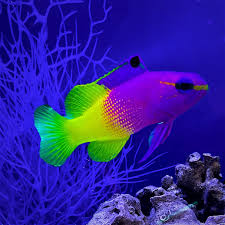The Dragon and Its Mystical Wonders in Chinese Mythology

In Chinese mythology, the dragon is one of the most revered and powerful mythical creatures, often associated with divine forces, natural elements, and profound cosmic significance. Unlike the menacing dragons of Western folklore, the Chinese dragon is typically depicted as a benevolent, auspicious being, symbolizing good fortune, power, and protection. Dragons are central figures in many mythological stories and are often portrayed as embodiments of nature’s forces—particularly water, rain, and the control of seasons. This article explores the dragon’s magical and mystical qualities in Chinese mythology, delving into its role in key myths and examining the creature’s mystical powers and symbolism in the ancient stories that continue to shape Chinese culture to this day.
The Chinese Dragon: Symbol of Power and Divine Protection
In Chinese culture, the dragon is seen as a symbol of the emperor’s authority, the harmony between Heaven and Earth, and the celestial forces that govern the natural world. Unlike its Western counterparts, which are often feared as destructive monsters, the Chinese dragon is revered as a bringer of fortune, wisdom, and protection. Its magical qualities are derived from its ability to shape-shift, control water, and transcend the natural boundaries of time and space.
The dragon’s mystique is further compounded by its association with natural phenomena, such as thunderstorms, rivers, and the weather. As a symbol of natural balance, the dragon is considered both a harbinger of prosperity and a protector against disasters. Its powers are not only magical but also transcendental, reflecting a deep connection to the universe and the cosmic order.
The Mythological Origins of the Chinese Dragon
The origins of the Chinese dragon are rooted in ancient mythology, where the creature was believed to be a combination of several animals and natural elements. The dragon’s appearance is said to consist of the head of a camel, the body of a snake, the horns of a deer, the claws of an eagle, the scales of a carp, and the mane of a lion. This fusion of animal features highlights the dragon’s supernatural nature, giving it the ability to conquer the skies, the seas, and even the underworld.
The most well-known myth that explains the origin of the Chinese dragon is the story of Fu Xi and Nu Wa, two primordial beings credited with the creation of humanity. According to legend, Fu Xi, who is often depicted with the body of a serpent and a dragon-like appearance, invented writing and established the first system of governance. Nu Wa, his consort, is often shown with the body of a serpent as well. Together, they are said to have formed the early foundations of civilization and to have brought harmony to the Earth.
Another foundational myth about the dragon is that it was once a mighty river god. Ancient Chinese belief holds that the dragon was a creature of the rivers and seas, a benevolent force that controlled water and weather patterns. The dragon’s affinity with water is so closely tied that it is often seen as an agent of rain, which is critical for agriculture and prosperity. The creature’s mystical nature thus encompasses both the divine and the natural, marking it as a guardian of the environment.
The Dragon and the Story of the Dragon Kings
One of the most famous and captivating myths in Chinese mythology is the legend of the Dragon Kings, which introduces multiple dragon gods who govern the seas, rivers, and weather. The Four Dragon Kings are said to rule over the Four Seas of China—each corresponding to a cardinal direction—and they are believed to have the power to command water, summon storms, and bring life-giving rain to the land.
The Dragon Kings are revered as gods of water and are often invoked during times of drought, seeking their blessings to bring rain to the land. These deities are depicted as mighty, fearsome, yet benevolent creatures with the power to control the elements. They are often represented as dragons with human features, wearing ornate robes and crowns. In the myth, the Dragon Kings not only serve as guardians of the waters but also protect the people from disasters, often intervening in mortal affairs when the balance of nature is disrupted.
One famous legend involving the Dragon Kings tells the tale of a young hero who must seek their help to end a terrible drought. In this story, the protagonist embarks on a perilous journey to the Dragon Kings’ palaces, where he must prove his worth by overcoming challenges and proving his sincerity. Upon reaching the Dragon Kings, he appeals to them to end the drought that is plaguing his homeland. The Dragon Kings, moved by his plea, grant his request, bringing rain to the parched land.
This myth reinforces the belief that dragons possess the ability to manipulate natural forces, particularly those related to water, and their intervention is often seen as an act of divine mercy and favor.
The Myth of the Dragon and the Pearl
In another fascinating Chinese myth, the dragon is often depicted chasing or guarding a precious pearl, which symbolizes wisdom, enlightenment, and cosmic energy. The pearl, in this context, represents not just material wealth but also spiritual transformation and the attainment of knowledge.
The story of the dragon and the pearl is symbolic of the pursuit of wisdom and the spiritual journey. It is said that the dragon searches for the pearl to unlock the secrets of the universe, reflecting the eternal quest for knowledge. In some versions of the myth, the pearl is also a symbol of immortality, representing the dragon’s connection to the divine and its role as a guardian of eternal life.
In the myth, the dragon’s pursuit of the pearl is not just a physical chase; it is also a metaphor for the struggle to understand the mysteries of the universe. The pearl, often guarded by the dragon, can only be obtained through perseverance, understanding, and purity of heart. The dragon’s determination to capture the pearl signifies the importance of enlightenment in Chinese philosophy.
The Dragon’s Gate and the Transformation of the Carp
One of the most widely known dragon myths in Chinese culture is the story of the carp that transforms into a dragon. According to legend, a carp that successfully swims up the Dragon’s Gate waterfall at the top of the Yellow River is transformed into a dragon. This myth symbolizes perseverance, determination, and the idea of achieving greatness through hard work and persistence.
The story is often used as an allegory for success in life. The carp’s arduous journey symbolizes the challenges and obstacles that individuals must overcome to achieve their goals. The transformation into a dragon represents the ultimate reward for those who persevere through adversity and remain steadfast in their pursuit of greatness.
This myth is closely associated with the idea of self-cultivation and the belief that anyone, regardless of their origins or station in life, can rise to greatness through perseverance and determination. In Chinese culture, this story is often told during times of struggle or challenge to inspire hope and resilience.
The Dragon and Immortality: A Key to Eternal Life
In Chinese mythology, the dragon is also linked to the concept of immortality. Several myths associate the dragon with the elixir of life, a mystical potion that grants eternal life and wisdom. The dragon is often depicted as guarding the elixir or guiding individuals in their quest for immortality.
One of the most famous figures associated with immortality is the Eight Immortals, a group of legendary beings who are said to have achieved immortality through their spiritual practices. The dragon is frequently shown accompanying these immortals or serving as a protector in their journeys, symbolizing the connection between immortality, cosmic forces, and divine power.
The dragon’s association with immortality underscores its position as a cosmic being with the ability to transcend time and space. It is a creature that embodies the quest for eternal life, wisdom, and enlightenment.
Conclusion: The Dragon’s Enduring Legacy
The mystical and magical qualities of the Chinese dragon continue to captivate and inspire generations. From its association with the Dragon Kings to the pursuit of the elusive pearl, the dragon is a symbol of both natural forces and divine power. Its ability to shape-shift, control water, and transcend time highlights its role as a guardian of balance and prosperity. Through its many appearances in myths and legends, the dragon serves as a reminder of the wisdom, perseverance, and spiritual growth required to navigate the challenges of life.
As one of the most beloved and enduring symbols in Chinese mythology, the dragon continues to hold a prominent place in both ancient and modern Chinese culture. Its legacy, rich in mystical significance, remains a testament to the deep connection between the people of China and the natural and spiritual world around them.

